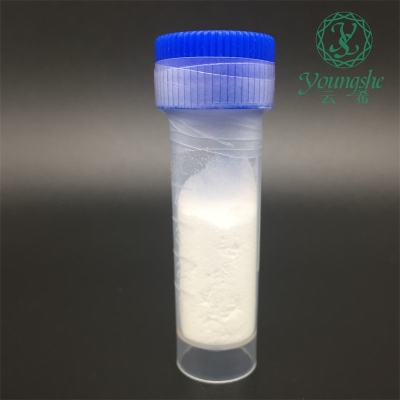-
Categories
-
Pharmaceutical Intermediates
-
Active Pharmaceutical Ingredients
-
Food Additives
- Industrial Coatings
- Agrochemicals
- Dyes and Pigments
- Surfactant
- Flavors and Fragrances
- Chemical Reagents
- Catalyst and Auxiliary
- Natural Products
- Inorganic Chemistry
-
Organic Chemistry
-
Biochemical Engineering
- Analytical Chemistry
-
Cosmetic Ingredient
- Water Treatment Chemical
-
Pharmaceutical Intermediates
Promotion
ECHEMI Mall
Wholesale
Weekly Price
Exhibition
News
-
Trade Service
Carbetocin acetate is a synthetic hormone that is commonly used in the chemical industry.
It is used in a variety of applications, including the production of plastics, textiles, and other synthetic materials.
While carbetocin acetate is generally considered to be a safe and effective chemical, there are some potential risks associated with its use.
One of the main risks associated with carbetocin acetate is its potential to cause cancer.
While the evidence for this is limited, there are some studies that suggest that exposure to carbetocin acetate may increase the risk of certain types of cancer, such as leukemia and lymphoma.
Another potential risk of carbetocin acetate is its potential to disrupt the endocrine system.
This hormone is known to interfere with the body's natural hormonal balance, which can have a range of negative effects.
For example, exposure to high levels of carbetocin acetate has been linked to the development of gender-bending characteristics in animals, and there is some evidence to suggest that it may have similar effects in humans.
There are also some concerns about the environmental impact of carbetocin acetate.
Like many other chemicals used in the production of synthetic materials, carbetocin acetate is persistent in the environment and can accumulate in soil, water, and other ecosystems.
This can have negative effects on wildlife, including fish, birds, and other aquatic animals.
Despite these potential risks, carbetocin acetate is generally considered to be a safe and effective chemical.
It is widely used in the chemical industry, and is generally well-tolerated by the human body.
However, it is important for workers who handle carbetocin acetate to take appropriate safety precautions to minimize their exposure to this chemical.
This can include wearing protective clothing, using ventilation systems to dissipate any fumes, and following proper handling and storage procedures.
In conclusion, while carbetocin acetate is generally considered to be safe and effective, it is important for workers in the chemical industry to be aware of the potential risks associated with its use.
By taking appropriate safety precautions, workers can minimize their exposure to this chemical and reduce the risk of negative effects on their health and the environment.






